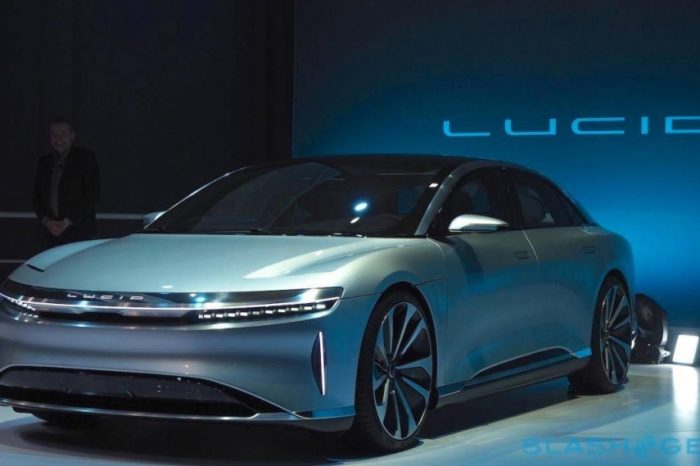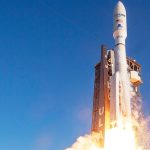Amazon launches its first Kuiper Internet Network test satellites into space as it aims to take on SpaceX’s Starlink
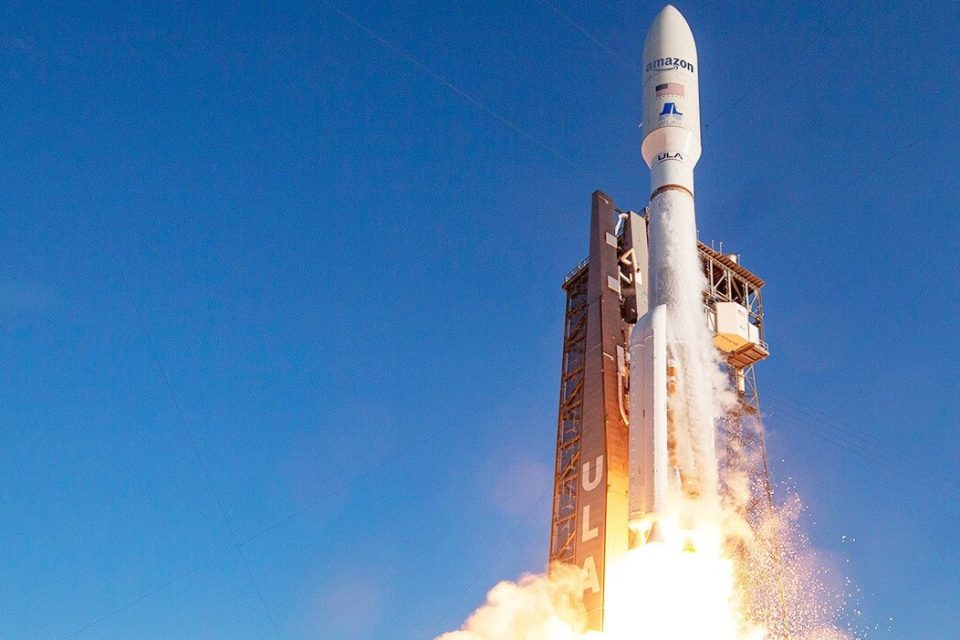
Amazon successfully launched the first pair of its prototype satellites into space for its planned Kuiper internet network on Friday from Florida. The launch marks a pivotal step in the company’s ambitious Kuiper internet network project to send thousands more satellites into orbit, ultimately delivering internet services across the globe as it attempts to challenge SpaceX’s Starlink for global internet dominance.
In a highly anticipated event, a United Launch Alliance Atlas 5 rocket with the Amazon logo lifted off from Cape Canaveral, taking flight shortly after 2 p.m. Eastern time (1800 GMT). This historic launch carried with it the two Kuiper test satellites, signifying a momentous milestone for Amazon. It’s worth noting that this mission was originally slated to utilize different rockets, further highlighting the significance of this achievement.
This mission marks the inaugural test of Amazon’s space technology, as the e-commerce giant sets its sights on deploying a formidable fleet of 3,236 additional satellites in the coming years. The goal: to provide broadband internet access on a global scale—an ambition that parallels SpaceX’s endeavor with its nearly 5,000 Starlink satellites currently in orbit. The name Project Kuiper refers to Gerard Kuiper, an astronomer and the namesake of the Kuiper Belt, which is a collection of ice bodies past Neptune’s orbit.
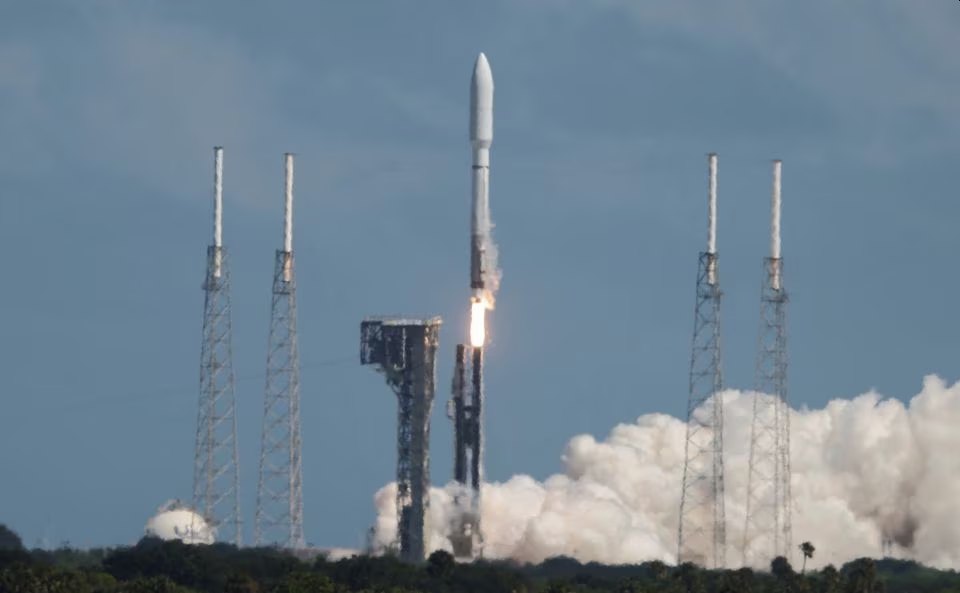
A United Launch Alliance Atlas V rocket lifts off carrying Amazon’s two prototype relay stations for space-based internet service it calls Project Kuiper, from the Cape Canaveral Space Force Station in Cape Canaveral, Florida, U.S., October 6, 2023. The launch is the first to test Amazon’s internet satellites in space before deploying some 3,200 more. (Credit: REUTERS/Joe Skipper)
In the lead-up to the launch, Amazon kept a shroud of secrecy around the two satellites, both meticulously constructed at the company’s satellite facility in Redmond, Washington. The live stream of the launch, overseen by the United Launch Alliance—a collaborative venture between Boeing and Lockheed—concluded shortly after liftoff, leaving viewers curious about the deployment of the satellites.
The news comes four years after Amazon submitted its application to the US Federal Communications Commission (FCC ) for permission to launch over 3,000 broadband internet satellites for its ‘Project Kuiper’ initiative. Project Kuiper consists of 3,236 satellites in 98 orbital planes, at altitudes between 366 and 391 miles. If successful, Kuiper will put Amazon in direct competition with Elon Musk’s SpaceX and its Starlink service.
Amazon said it plans to deliver internet service to “tens of millions” of consumers both in the United States and around the world via the satellite constellation, which would operate in the Ka-band. Project Kuiper is a long-term initiative to launch a constellation of Low Earth Orbit satellites that will provide low-latency, high-speed broadband connectivity to unserved and underserved communities around the world. Project Kuiper is one of the many projects embarked on by tech giants to expand internet access to millions of people around the world.
Amazon has pledged a substantial $10 billion to the initiative which was first unveiled in 2019, the same year SpaceX embarked on its Starlink journey. U.S. regulatory mandates dictate that Amazon must deploy half of its planned satellite constellation by 2026.
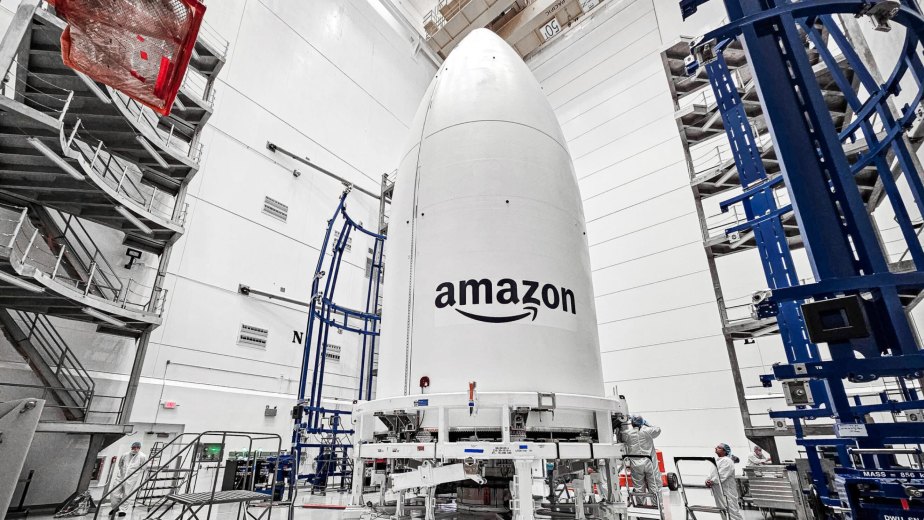
The low-Earth orbit satellite broadband internet market is poised to become a multi-billion-dollar industry in the coming decade. With SpaceX’s Starlink project establishing itself as the largest satellite operator globally, Amazon is set to join the race alongside competitors like Canada’s Telesat, which is yet to launch its satellites, and France’s Eutelsat’s OneWeb, primarily catering to government and business clients.
Much like SpaceX, Amazon has its sights set on both individual consumers and enterprise customers with its Kuiper initiative. Drawing from its expertise in device development, Amazon plans to manufacture consumer terminals at an estimated cost of $400 each, though pricing details are yet to be disclosed. In contrast, SpaceX offers its consumer Starlink terminals at $599 each.
To roll out the complete Kuiper network, Amazon unveiled an ambitious launch agreement last year, securing 83 launches—marked as the largest commercial rocket procurement to date. The launches involve a collaboration with various rocket companies, including Jeff Bezos’ Blue Origin, ULA, and Europe’s Arianespace.
Meanwhile, Amazon and SpaceX are not the only players in the space. Meta is also working on ways to bring internet access to millions of people through its Facebook Connectivity projects. We wrote about Facebook when the world’s largest social networking site partnered with Telefonica, and others, to extend rural connectivity and bring internet access to more people.
Below is a video of the launch.
